Effect of environment on the interferometry of clocks
—by Harshit Verma
EQUS researchers have developed a general framework for testing relativistic effects in quantum systems affected by noise, proving a theoretical foundation for future experiments on quantum gravity.
Most experiments based on the interplay between quantum mechanics and gravity, proposed in the last century, treat gravity as a Newtonian force, based on Einstein’s general theory of relativity. Driven by recent development in quantum technologies, quantum clocks have emerged as ultraprecise timekeeping machines, suitable for testing genuinely relativistic effects such as time dilation, as formulated in Einstein’s general theory of relativity. Interferometry with clocks therefore provides a potential new venue to test relativistic effects using a quantum system.
Clocks, as timekeeping devices, are susceptible to effects of general relativity. A clock near Earth’s surface therefore ticks slower than one far away from it (such as on a satellite)—an effect known as time dilation. A clock prepared in a spatial superposition traverses paths with different proper times, carrying information about time in its internal state. As per the double-slit experiment, an attempt to record this information reduces the ‘visibility’ (the maximum contrast) of the interference. Therefore, the interference of the path of the particle reduces visibility, demonstrating the relativistic effect of time dilation due to its internal structure working as a clock.
The EQUS team—Harshit Verma, Magdalena Zych and Fabio Costa—built on the idea of using quantum clocks to measure time dilation due to gravity, while recognising the inherent challenges in realising such an experiment, specifically because of noise. Our model considers the quantum clock as a quantum particle with an internal structure, such as an atom and its energy spectrum. The internal structure allows for the construction of states that evolve over time. This encodes information about the time traversed by the clock, which depends on its height above Earth’s surface, in the state of the clock.
We constructed a general formalism to consider clocks affected by quantum noise in an interferometric scenario compatible with relativistic time dilation. Quantum noise, which primarily acts on the internal structure of the clock, is slated to play an important part in such an experiment and there are many existing models for studying the effect of noise on a quantum particle. However, translating these models to scenarios with time dilation is challenging because time dilation affects all physical processes, including the dynamics of the environment and its interaction with the clock.
We drafted a general formalism and tested it with well-known noise models, including when the environment exhibits a temperature. The results are intuitive in most cases we analysed—noise leads to lower visibility—because the environment carries extra information. However, we also found that noise sometimes has the opposite effect, increasing the visibility relative to a noise-free clock.
Our analysis and framework provide tools to better estimate the expected outcome of future interferometry experiments to study relativistic time dilation. The results also provide a general framework for testing other proposals. For example, in the interferometer, the particle simultaneously interacts with two different environments or with a single environment in a state that depends on the path. Thus, it might be possible to probe the properties of two different environments or environmental parameters using a single probe. One scenario that we are currently investigating is when there are two different thermal environments and we want to estimate two temperatures simultaneously.
Read the full paper here: https://doi.org/10.22331/q-2021-08-17-525. Harshit is a PhD student at UQ, working with Chief Investigator Magdalena Zych and Research Fellow Fabio Costa. The work forms part of EQUS’ Quantum Clock Flagship research program.
Major funding support

The Australian Research Council Centre of Excellence for Engineered Quantum Systems (EQUS) acknowledges the Traditional Owners of Country throughout Australia and their continuing connection to lands, waters and communities. We pay our respects to Aboriginal and Torres Strait Islander cultures and to Elders past and present.


